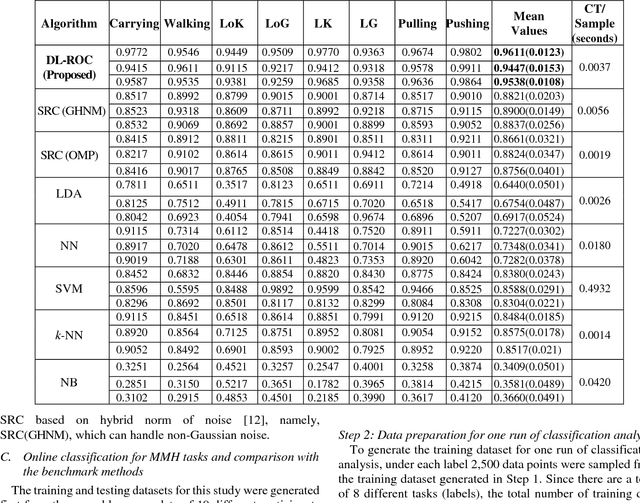Sunwook Kim
James
A Method for Robust Online Classification using Dictionary Learning: Development and Assessment for Monitoring Manual Material Handling Activities Using Wearable Sensors
Oct 22, 2018
Abstract:Classification methods based on sparse estimation have drawn much attention recently, due to their effectiveness in processing high-dimensional data such as images. In this paper, a method to improve the performance of a sparse representation classification (SRC) approach is proposed; it is then applied to the problem of online process monitoring of human workers, specifically manual material handling (MMH) operations monitored using wearable sensors (involving 111 sensor channels). Our proposed method optimizes the design matrix (aka dictionary) in the linear model used for SRC, minimizing its ill-posedness to achieve a sparse solution. This procedure is based on the idea of dictionary learning (DL): we optimize the design matrix formed by training datasets to minimize both redundancy and coherency as well as reducing the size of these datasets. Use of such optimized training data can subsequently improve classification accuracy and help decrease the computational time needed for the SRC; it is thus more applicable for online process monitoring. Performance of the proposed methodology is demonstrated using wearable sensor data obtained from manual material handling experiments, and is found to be superior to those of benchmark methods in terms of accuracy, while also requiring computational time appropriate for MMH online monitoring.
 Add to Chrome
Add to Chrome Add to Firefox
Add to Firefox Add to Edge
Add to Edge